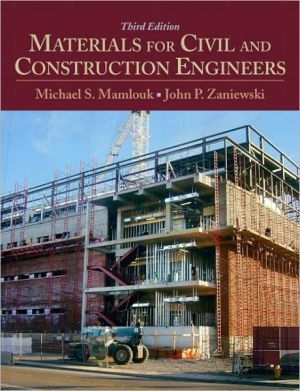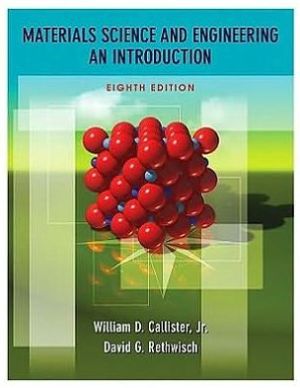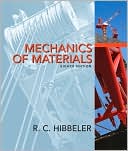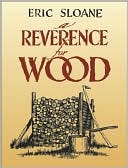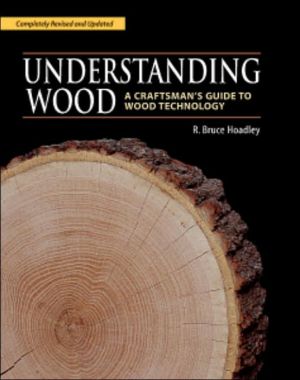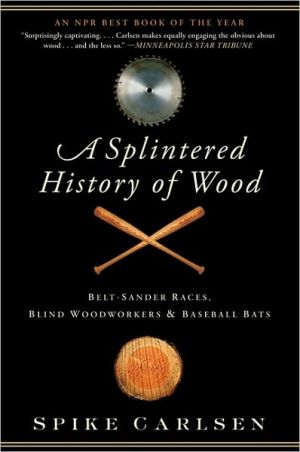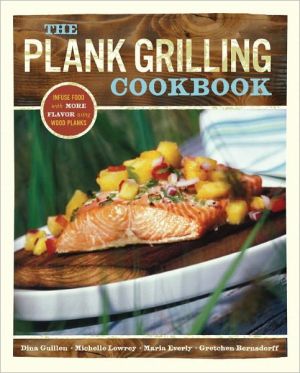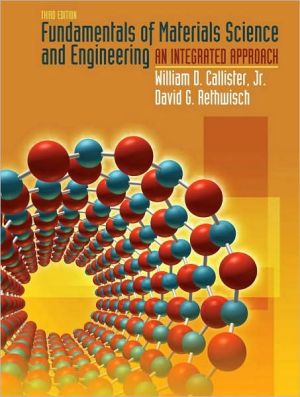Materials for Civil and Construction Engineers
Materials for Civil and Construction Engineers, 3/e is ideal for courses in Civil Engineering Materials, Construction Materials, and Construction Methods and Materials offered in Civil, Environmental, or Construction engineering departments.\ This introduction gives students a basic understanding of the material selection process and the behavior of materials — a fundamental requirement for all civil and construction engineers performing design, construction, and maintenance. The authors...
Search in google:
Materials for Civil and Construction Engineers, 3/e is ideal for courses in Civil Engineering Materials, Construction Materials, and Construction Methods and Materials offered in Civil, Environmental, or Construction engineering departments.This introduction gives students a basic understanding of the material selection process and the behavior of materials — a fundamental requirement for all civil and construction engineers performing design, construction, and maintenance. The authors cover the various materials used by civil and construction engineers in one useful reference, limiting the vast amount of information available to the introductory level, concentrating on current practices, and extracting information that is relevant to the general education of civil and construction engineers. A large number of experiments, figures, sample problems, test methods, and homework problems gives students opportunity for practice and review.
1Materials engineering concepts12Nature of materials523Steel864Aluminum1385Aggregates1596Portland cement2017Portland cement concrete2358Masonry3059Asphalt binders and asphalt mixtures31910Wood39411Composites445App. 1Introduction to measuring devices466App. 2Tension test of steel and aluminum470App. 3Torsion test of steel and aluminum474App. 4Impact test of steel477App. 5Microscopic inspection of materials480App. 6Sieve analysis of aggregates482App. 7Specific gravity and absorption of coarse aggregate487App. 8Specific gravity and absorption of fine aggregate490App. 9Bulk unit weight and voids in aggregate493App. 10Slump of freshly mixed Portland cement concrete496App. 11Unit weight and yield of freshly mixed concrete499App. 12Air content of freshly mixed concrete by pressure method502App. 13Air content of freshly mixed concrete by volumetric method504App. 14Making and curing concrete cylinders and beams506App. 15Capping cylindrical concrete specimens with sulfur or capping compound510App. 16Compressive strength of cylindrical concrete specimens512App. 17Flexural strength of concrete515App. 18Rebound number of hardened concrete518App. 19Penetration resistance of hardened concrete520App. 20Testing of concrete masonry units523App. 21Viscosity of asphalt binder by rotational viscometer526App. 22Dynamic shear rheometer test of asphalt binder528App. 23Penetration test of asphalt cement531App. 24Absolute viscosity test of asphalt533App. 25Preparing and determining the density of hot-mix asphalt (HMA) specimens by means of the superpave gyratory compactor535App. 26Preparation of asphalt concrete specimens using the Marshall compactor539App. 27Bulk specific gravity of compacted bituminious mixtures543App. 28Marshall stability and flow of asphalt concrete546App. 29Bending and compression tests of wood548App. 30Tensile properties of plastics553
\ From the Publisher“This is one of the most comprehensive and up to date CE materials textbooks available.”\ -Jose Weissmann, UNIVERSITY OF TEXAS AT SAN ANTONIO\ “This book is very well written and easy to follow. The contents of aggregates, Portland cement concrete, and asphalt binders and asphalt mixtures are exactly what I need for teaching my transportation materials course.”\ -Jie Han, KANSAS STATE\ \ \
